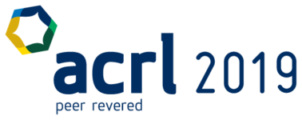Session Description:
Find out how space utilization, perception, and needs assessment data provide an understanding of what students need in library spaces in order to design buildings that transform their experience of library as place. This project aimed to fill a gap in research on community college student needs for library spaces that support three activities shown in the literature to be the focus of library design: quiet study, communal work, and content creation. This research and programming process represents an attempt to develop a model for a 21st Century community college library.
